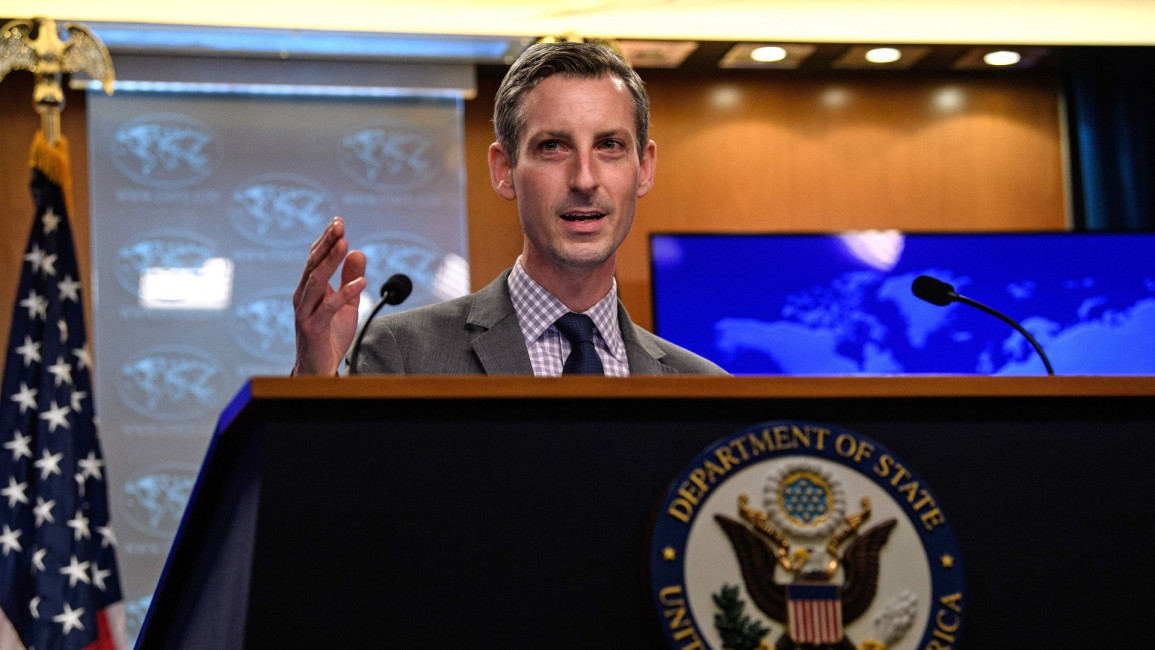US talking with Turkey to resolve F-35 dispute, says State Department
The Pentagon is holding consultations with Turkey to resolve a dispute over Ankara's efforts to obtain the F-35 fighter jet, US State Department spokesman Ned Price said on Monday.
He said he would not confirm the proposed arms sales until they were approved by Congress.
Turkey has been angered by the US decision to push it out of the F-35 programme, after Ankara decided to purchase a Russian air defence system.
"I can say that the United States has not made any offer regarding funding for Turkey's requests to purchase F-16s," Price said.
He also declined to respond to recent comments by Turkish President Recep Tayyip Erdogan that Ankara was in talks with the US to buy the F-16 - an earlier generation of fighter jet.
Price told journalists during the briefing to ask Ankara about its plans to purchase defence equipment.
The spokesperson added that the Pentagon was in talks with the Turkish government to resolve the dispute regarding the F-35 programme, but said he was "not in a position to talk about private conversations on this subject".
Washington expelled Ankara from its F-35 jet programme in 2019, where it was a buyer and manufacturer.
It also sanctioned Turkey's defence industry earlier this year over its purchase of Russia’s S-400 defence system.
"I cannot say that a healthy process is running in Turkish-American ties... We bought F-35s, we paid $1.4 billion and these F-35s were not given to us. The United States needs to first sort this out," Erdogan was quoted as saying last month.
The US has been alarmed by Turkey's relationship with Russia, and fears Ankara's use of the S-400 could jeopardise NATO security.



